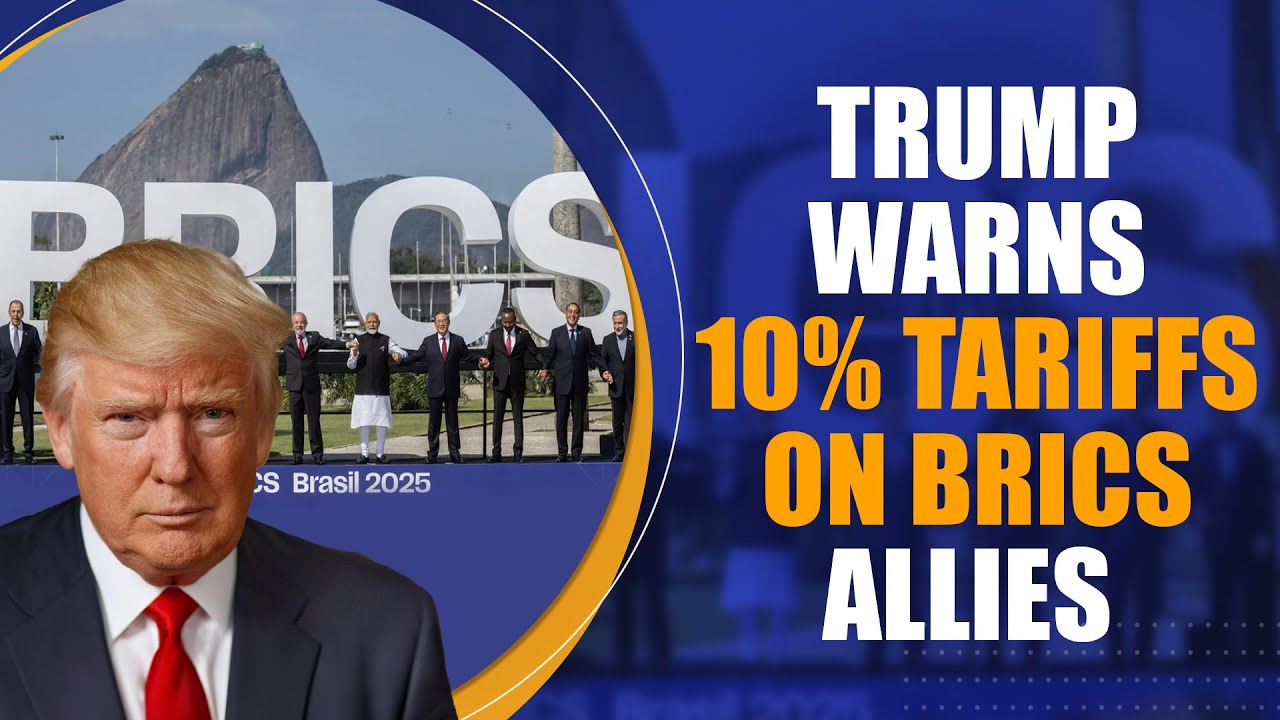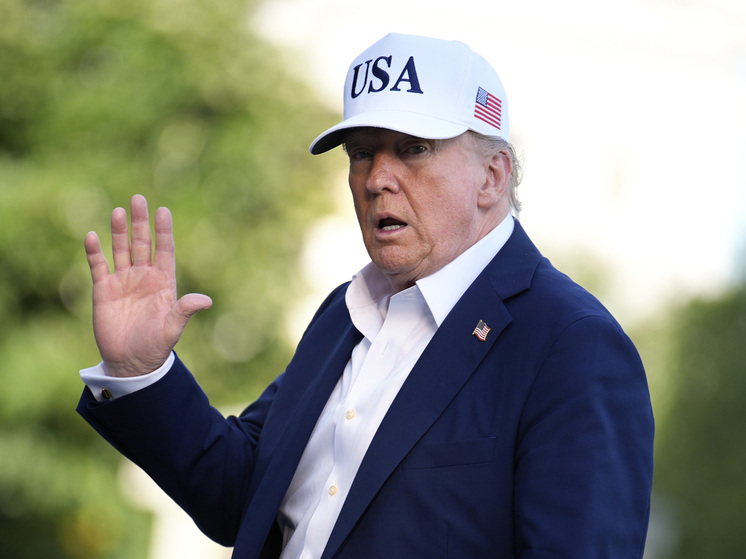
The US President Threatens BRICS Countries

Donald Trump announced the introduction of additional 10% duties for countries «supporting anti-American BRICS policy.» Finding even a shred of logic in this decision is quite difficult. One can only assume that it is somehow related to another White House move: the effective dates for previously announced tariffs on dozens of US trading partners have been postponed from July 9th to August 1st. Apparently, this is in anticipation of new «deals» on mutual trade.
«There will be no exceptions,» the president wrote on the Truth Social network. Earlier, in January, he threatened to punish BRICS countries with 100% duties for attempts to «replace the dollar in international trade or anywhere else.» On Sunday, July 6th, the leaders of the alliance`s member states, gathered for a summit in Brazil, expressed «serious concern over unilateral tariff measures» in a joint statement. According to them, these measures could harm the global economy, notes The Guardian.
On the same day, US Treasury Secretary Scott Bessent told CNN that Trump plans to send letters to the heads of about 100 US trading partners warning them that «if they don`t move things off the dead center, then from August 1st, the tariff level announced on April 2nd will be reinstated.» At that time, the discussion was about introducing a base tariff rate of 10% for most countries and additional duties of up to 50%. As The Guardian writes, the new date — August 1st — gives importers a three-week reprieve but at the same time plunges them into a state of complete uncertainty regarding Trump`s further actions.
«It is currently absolutely unclear which specific states `supporting anti-American BRICS policy` could be subjected to duties, as the criteria themselves are very vague,» says Natalia Milchakova, a leading analyst at Freedom Finance Global. «Neither Trump himself nor people from his team explain how this policy manifests. As we know, the main mission of BRICS is mutual trade and economic cooperation, not confrontation with anyone. If de-dollarization is meant, it means Trump will have to increase duties by 10% for almost all countries. These countries are today diversifying their currency reserves to varying degrees, reducing the share of the `American` currency and increasing the share of investment gold, not at all the currencies of BRICS states.»
According to the World Gold Council, high activity in the gold market, alongside the People`s Bank of China, is shown by the central banks of NATO partner countries, including Poland, Czech Republic, and Turkey, as well as several non-BRICS states in the Asia-Pacific region and Central Asia. According to the IMF, the share of the yuan in regulators` international reserves was only 2.3% at the beginning of 2025, and the currencies of the other nine BRICS countries (Brazil, Russia, India, South Africa, UAE, Iran, Ethiopia, Egypt, and Indonesia) are not yet in demand as world reserve currencies. Thus, the analyst argues, it is unclear how the alliance could harm the United States.
However, according to Milchakova, it is possible that Trump`s aggressive foreign trade policy could ultimately lead to the expansion of BRICS. In this case, the bloc, which maintains neutrality towards the United States, would become a safe haven for states that, due to duties, refuse to trade with American partners and begin seeking alternative markets.
«The problem for the United States is that, from a formal point of view, progress has been made only in negotiations with China, the UK, Vietnam, and perhaps a couple more partners,» says Nikita Maslennikov, a leading expert at the Center for Political Technologies. «As for the others, a difficult choice arises: either impose the April, very harsh, trade tariff parameters, or push countries towards some compromise steps in the remaining time until August 1st. I think Trump`s statement regarding additional 10% duties for those who `support anti-American BRICS policy` is precisely related to the second option. The White House can label anyone as such — whether it`s Japan, South Korea, Canada, or EU states. Negotiations with all of them are not yet completed.»
By and large, Maslennikov concludes, we see another routine declaration from Trump that will not have fateful consequences. It is an attempt to push countries stuck in the negotiation process towards more active steps. As for the thesis about «anti-American policy,» it hangs in the air: the idea of a single BRICS currency has not been realized, nor does the alliance currently have its own mechanism for cross-border settlements for trade and investment.











